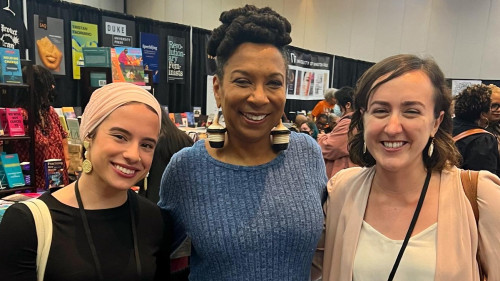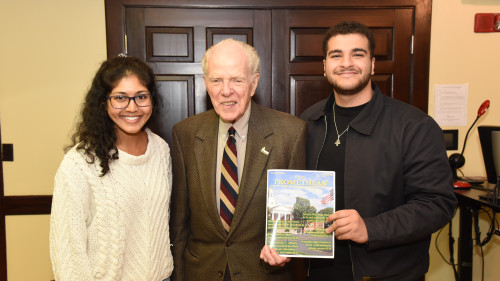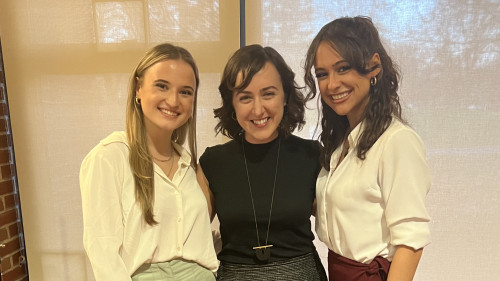
Want your class to learn about a new trend in writing? Why not Skype in a leader in the field?
That’s exactly what Stacey Dearing, Ph.D. did when she wanted students in her ENG253 Short Story class to hear about microfiction. The new teaching assistant professor of English brought in T.R. Darling via Skype to talk to the class about his work in the fast-growing genre.
Darling, whose day job is as a news producer in Lansing, Mich., moonlights as a microfiction writer who tweets under the handle @QuietPineTrees. He has nearly 17,000 followers, with even more on Tumblr, and was the subject of a recent feature in Forbes. Dearing’s students read and discussed his work in class, and prepared questions for him before bringing him in on Skype.
“Microfiction is an extremely short story, even shorter than what we call flash fiction,” said Dearing. “There is obviously very little detail and it’s up to the reader to fill in the context of the story. These are high concept ideas that keep readers thinking. It’s the ideas that linger, rather than detail or plot.”
With the character limit on Twitter at 280, Darling has to pack a lot into a few words. His most recently posted story: “The world of dreams was perfectly logical. It was simply vast, a human empire spanning galaxies, with so many people and wonders that our brief visits always found something familiar. To them we were the ultimate mystery, reality-bending heroes from our own, smaller universe.”
That theme fits in well with Dearing’s class, which focuses this semester on science fiction in varying lengths and formats.
“Science fiction is an effective way for writers and readers to critique contemporary society,” said Dearing. “It’s a way for us to imagine a better society.”
After class, the author tweeted: “I want to thank Prof. Dearing at Siena College for the privilege of speaking to her students today. They had some amazing insights about literature, storytelling, the microfiction format, and how to ethically dispose of alternate selves created through time travel.”
Dearing’s students welcomed the chance to hear directly from a microfiction master:
“Learning about the components of microfiction has shown me how diverse and multifaceted this literature is,” said Zoe Buscareno ’21. “Dr. Dearing is a phenomenal professor and I’m not surprised she came up with such an innovative and intriguing idea for our class. The interview was super fun and showed students how English classes can be interactive and engaging in a unique way."
Sam King ’22 added that T.R. Darling “was super nice and easy to talk to, about science fiction itself and his own writing. I've been hooked on microfiction ever since, especially his. It allows for a short reading time but a lot to think about afterwards.”
Dearing’s area of research is early American literature, but she explained that teaching students about science fiction really isn’t that much of a stretch.
“In early America, people asked themselves, ‘How do we imagine a new country?’ With science fiction, we ask ourselves, ‘How do we imagine a new society?’”

